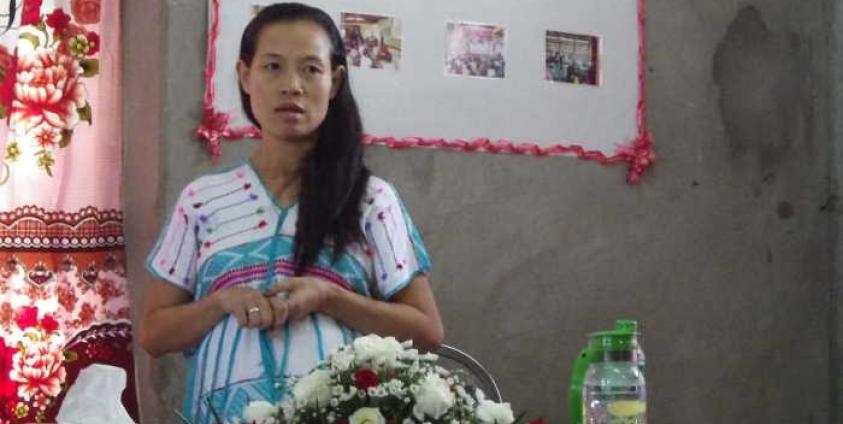Sa Eh Sue — Naw Elizabeth, from the Karen Women’s Empowerment Group (KWEG), recently spoke with BNI Election Newsroom about her experiences as an observer during polling in the recent election.
Q: Why did the KWEG participate as observers in the recent election?
A: We did this because we are a civil society. This election is the first step for a true political transition in our country. We needed to ensure whether or not it would be free and fair.
Q: What did your group focus on during your observation period and how did you prepare for this?
A: In Yangon we attended meetings held by the Union Election Commission (UEC) with other civil societies. Then, we prepared for the three areas (they would be observing): Yangon’s Ahlon Township, Kachin State capital Myitkyina and Chin State. After this we met with the UEC to divide up duties based on observation or education. Some of the other groups did one or the other, or both. First we were involved with providing education about the voting list release. We also educated the public about how the voting process worked and the difference between a valid and invalid ballot. On Election Day we were invited by the UEC as observers. We sourced observers for polling stations and provided them with official registration cards. After getting the official list we gave them "election watch" training. We watched carefully to see if polling stations opened and closed on time, if there were impediments for voting like if they felt threatened and if ballots were properly counted. However couldn’t keep an eye on everything.
Q: What were some of the challenges your organization faced during the election period?
A: When we told the public about the voter list some didn’t even know about it which suggests that maybe they weren’t really interested. Although the voter list wasn’t widely posted some didn’t take the initiative to inquire about it themselves. They didn’t realise how important it is. This kind of apathy was a real challenge for us to work with. Another thing was there wasn’t enough time for everything we wanted to accomplish. We also were short staffed. This posed a real problem for holding election workshops for the public. In some townships we felt pressure from officials even after showing them our accreditation. But most of these incidents were resolved after they talked with state officials.
Q: How fair was the election?
A: I would say it was 50/50. What I mean is to say is in theory everyone over the age of 18 should have the right to vote but we observed many people that couldn’t. There were many errors on the voter list. We also witnessed cheating during ballot counting. Another big problem is that some ethnic people could only cast ballots for the three parliaments not the forth one, the ethnic affairs minister. They had to argue with officials to cast their fourth vote. There were also people that cast ballots for ethnic affairs ministers without any knowledge about the candidates. Advanced voting wasn't also done fairly.
Q: Now that the election is finished did it meet your expectations?
A: As observers we tried to remain impartial by not holding preconceived expectations for how the election would turn out. In the villages that we were involved with we were able to work closely with locals providing education on how to vote, the importance of voting and what they should expect of their candidates. In these areas there weren’t many invalid ballots, so these results definitely met our expectations.
Q: Only seven out of 33 female candidates that ran in Karen State were elected. With such a small number that were victorious do you think they will be able to advocate on behalf of women in Karen State?
A: I believe in the female candidates that won. Before the election, we personally met with them to explain what our needs and expectations were. They promised if they won to fulfill them, some even guaranteed it in writing. I trust they will do their job. Women in Karen State have been suffered immensely from health related issues and domestic violence. Additionally, I believe these candidates can solve political issues and the lack of education for women after first working on a community level to help empower women. The reason why I believe in them is because women won in all levels of the Parliament.
Translated by Thida Linn
Edited by BNI staff




